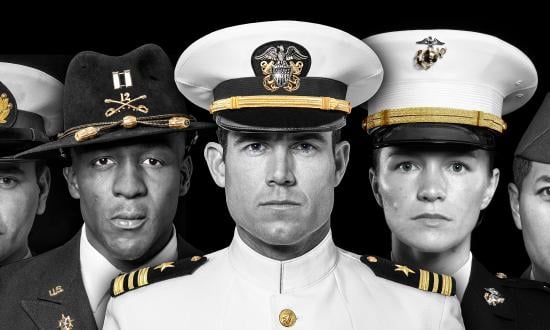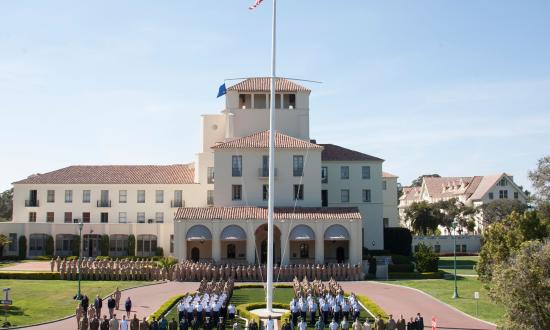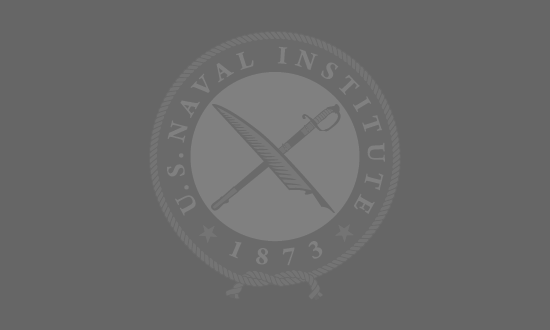The Naval Postgraduate School’s (NPS’s) mission is to “provide defense-focused graduate education, including classified studies and interdisciplinary research, to advance the operational effectiveness, technological leadership and warfighting advantage of the Naval services.” Most of the nearly 1,500 resident students are midlevel officers, with proven professional records from across the Department of Defense and international partner forces.
In the 18 to 27 months officers and staff noncommissioned officers spend getting a technical degree at NPS, they often experience a disconnection from the fleet because of the perpetually changing operational environment. For the Marine Corps students, this disconnection is exacerbated by a three-year payback tour that further removes them from their primary occupation. This can lead to the atrophy of occupational proficiency, particularly for those with technical specialties, effectively giving officers a “shelf life” for their operational experience that may compromise the currency of their thesis research.
Since mid-March 2020, the COVID-19 pandemic has illuminated the possibilities of asynchronous or semi-synchronous graduate education. With many students and professors adapting to these times, there are new opportunities for NPS students to conduct directed studies with industry partners or operational units. Students now have an opening for an experiential touchpoint back to the fleet, while gaining knowledge in high-demand skills that are needed throughout the force.
While each curriculum’s specialized training is relevant to tackling narrow problems, NPS should also provide Marines and sailors with tangible ways to see how their research can be combined with that of others to solve real problems. In David Epstein’s book Range, he argues that by creating personnel with a wide variety of practical skills, highly effective organizations are better prepared to solve wicked problems.1 An exchange program between NPS and the fleet will create a cohort of interdisciplinarians by taking experience from a student’s undergraduate degree, operational tour(s), supporting establishment billet(s), and their time at NPS.
A new initiative from the Naval Warfare Studies Institute at the NPS, called the NPS-Fleet Research Program (FRP), is designed to bring applied research from NPS to the operational forces. The FRP will provide units with students from various disciplines as interns and technical consultants. This provides NPS with focused applied research, the fleet with increased warfighting capability, and NPS students with an improved capacity to solve hard problems. While this initiative was originally focused on Marine Corps operations in the information environment (OIE), it can take any form needed by a sponsoring command.
The FRP also will create incentives for students to seek autonomy in their research and its impact on their warfighting communities. Most important, the FRP provides the services with well-informed and motivated officers who know how to solve difficult problems.
To analyze this program through the lens of a civilian company’s talent management, look to the summer associate program at high-profile law firms such as Gunderson Dettmer (GD). GD is one of the highest profile venture law firms globally and recently won PitchBook’s seventh consecutive award for Most Active Venture Law Firm. Winning seven years in a row is no easy feat and shows that GD is a leader in attracting and retaining some of best venture capital attorneys across the globe. This unprecedented level of activity makes considering GD’s summer associate program worthwhile.
For approximately ten weeks during the summer between their second and third years in law school, students descend on GD’s global campuses as summer associates. Summer associates are immediately thrown into the mix with client interactions during their first weeks on the job. The GD experience differs vastly from that of its peers, as most first- and second-year associates at rival firms do not get client exposure. The high level of trust placed in summer associates to dive into client engagements gives them a sense of autonomy and directly correlates to the firm’s talent acquisition and sustainment program. Most law students never get this type of challenging, meaningful, and substantive experience, making it clear that GD understands the value of experiential learning and that innovation leadership is an organizational priority.2By replicating the current internship programs offered by elite organizations such as Gunderson Dettmer, the Department of Defense will have another way to maintain and sustain the force of the future.
The FRP provides a structure for NPS students and the fleet to benefit. Recently, the program began its pilot in support of Exercise Pac Sentry-21, a joint-coalition exercise between the staffs of I Marine Expeditionary Force (MEF), Third Fleet, U.S. Army Pacific, and Australia. In early June, one student and one faculty member traveled to Camp Pendleton, California, to meet with leaders and other professionals from the I MEF Information Group, the I MEF Fires and Effects Coordination Center, the Naval Information Warfare Center-Pacific, Third Fleet, and the Marine Corps Tactical Systems Support Activity. During their time in southern California, they experienced firsthand some of the pain points that occur when coordinating, planning, and executing operational exercises. This experience was truly eye-opening for the team as it was able to take a multitude of potential thesis topics back to NPS. This first iteration of the FRP has ensured that the student’s operational experience does not go stale, and gave the faculty participant a method of identifying new research lines of efforts to keep up with evolving concepts and capabilities.
By creating a collection of interdisciplinary officers, U.S. warfighters will be empowered to develop future warfighting concepts and remain adaptive to hard problems. Finally, this program will help meet the Marine Corps’ talent management goal in the 38th Commandant’s Planning Guidance by retaining high-performing Marines “inclined to learn, think, and innovate.” The Sea Services are in a critical transition period where they must stay ahead of and innovate faster than their competitors. The NPS-Fleet Research Program is a way to satisfy that end.
1 David Epstein, Range: Why Generalists Triumph in a Specialized World (New York: Riverhead Books, 2019).
2 John Kao, Military Innovation: 20 Propositions (San Francisco, CA: John Kao, 2020), 18.






